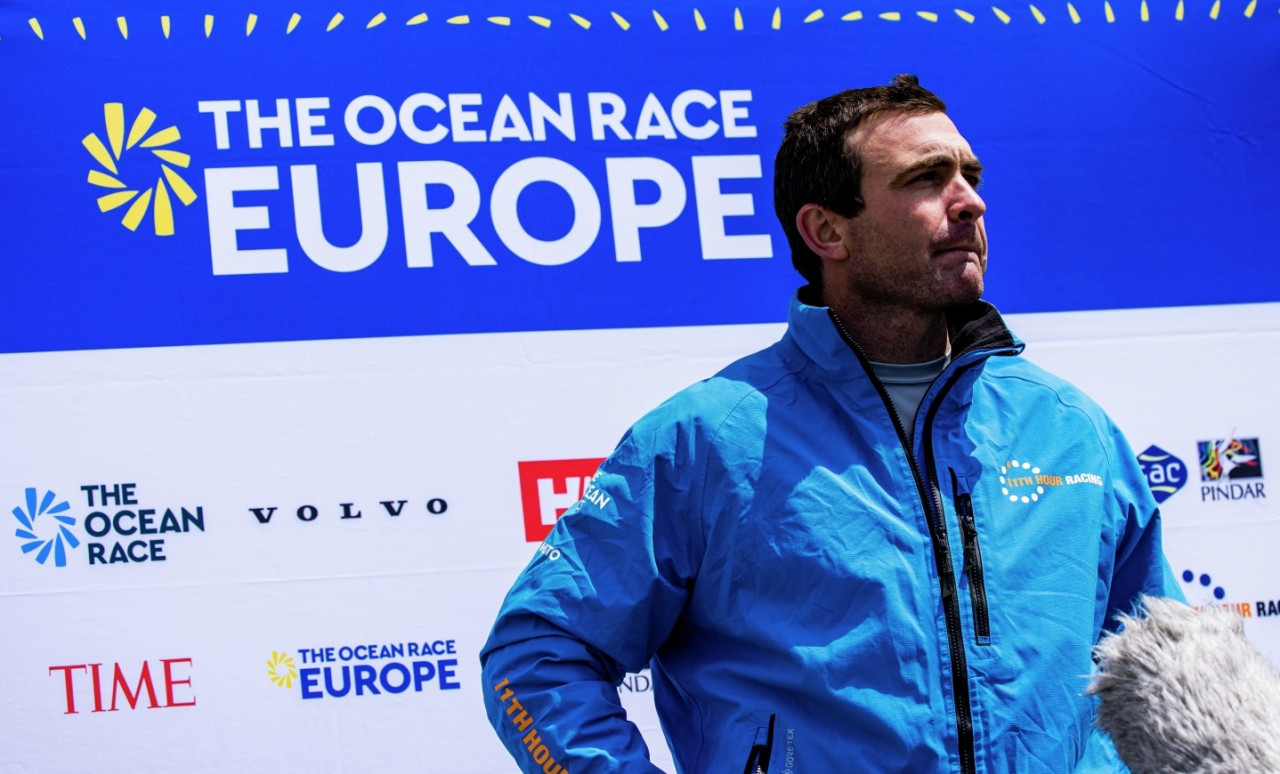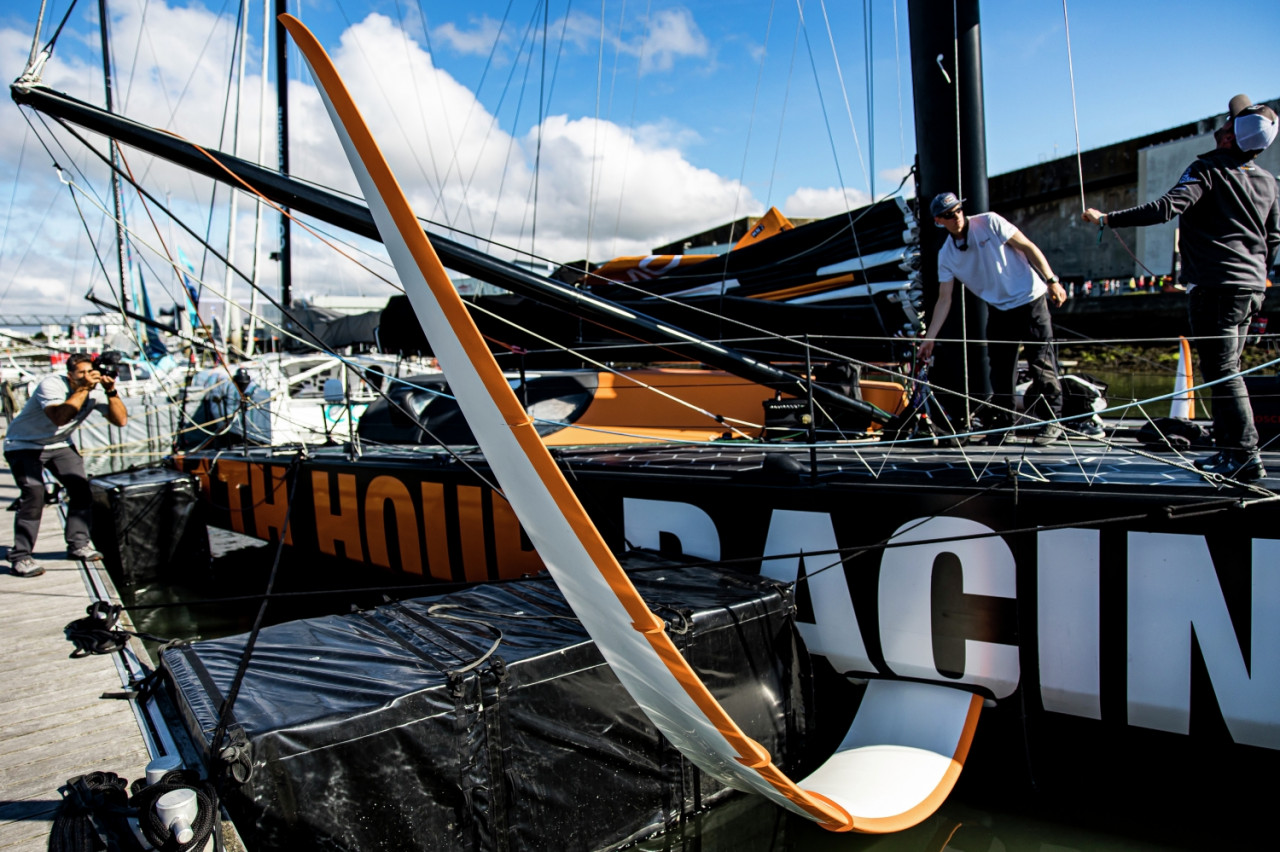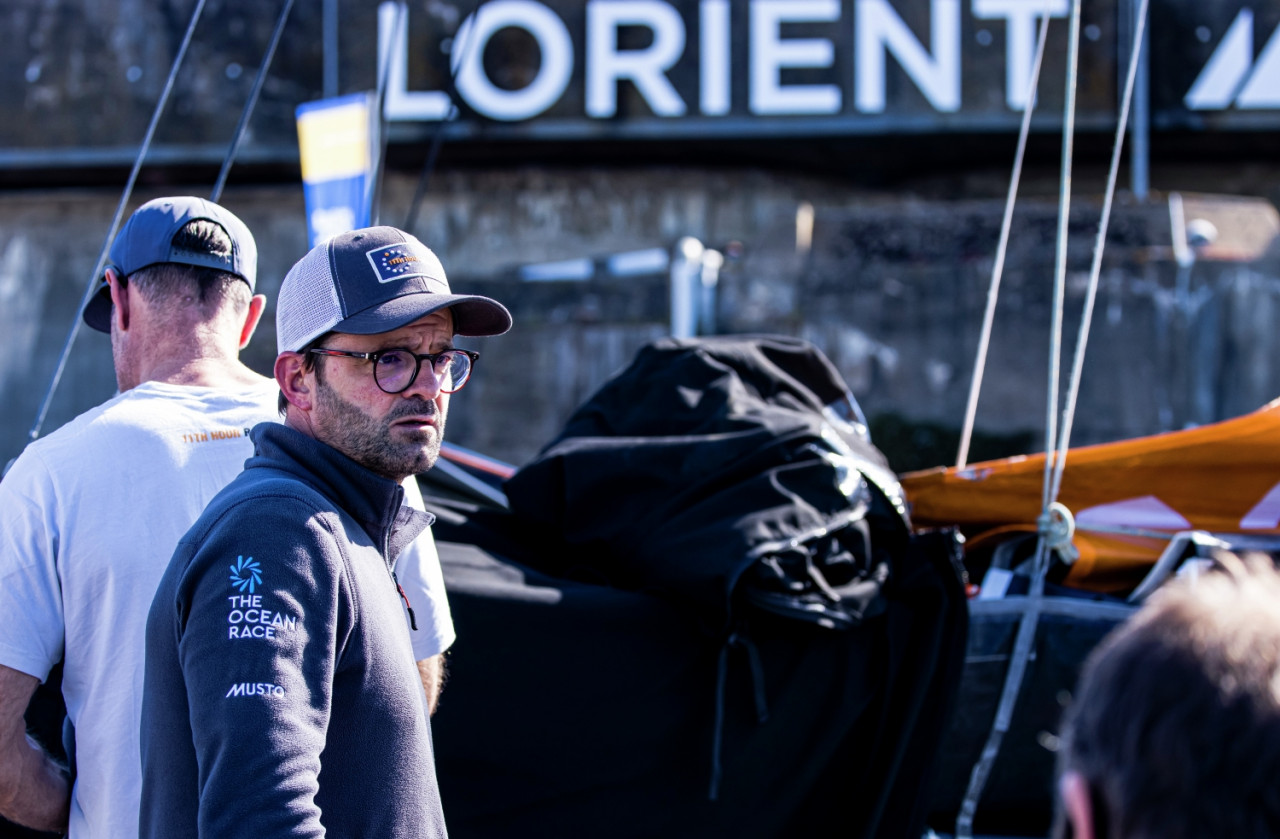Enright: The Ocean Race Europe is both a marathon and a sprint

The five-strong IMOCA fleet for the inaugural Ocean Race Europe, which starts on Saturday, is now gathering in Lorient as the countdown to the start begins.
This marks not just the build-up to the first race start since the Vendée Globe, but the beginning of the new IMOCA Globe Series Championship. Running until the end of the 2024-25 Vendée Globe, this includes crewed races like the Ocean Race Europe for the first time, alongside solo and double-handed events.
The Ocean Race Europe is set to begin with a Prologue sprint around the Île de Groix in light airs on Friday which does not count for points, before the IMOCA fleet and the seven-strong VO65 contingent set sail on the first leg from Lorient to Cascais in Portugal.
Charlie Enright, skipper of 11th Hour Racing Team, is champing at the bit to get going after a long build-up for an outfit which will use the Ocean Race Europe as a testbed for its entry in the Ocean Race proper, which starts from Alicante in the Autumn of next year.
Enright says the Prologue will be a relatively relaxed way to get going before the serious stuff starts on Saturday. “Yeah, honestly, it is nice it doesn’t count for points because it is going to be the first time we race as a group and it will be nice to just kind of check each other out before we’re racing for points,” said the American Ocean Race veteran. “I think it will be good for the race organisers as well – to get a bit of a shakedown.”
 © Sailing Energy / The Ocean Race
© Sailing Energy / The Ocean Race
Enright, whose crew includes the veteran British navigator Simon Fisher, the French star Pascal Bidégorry and the Swiss solo sailor Justine Mettraux, says the Ocean Race Europe is a critical part of his team’s build-up to the Ocean Race next year.
“This race will be a success for us if we can use anything from it for the development of our new platform,”he said, referring to the team’s new boat being built for the fully-crewed round-the-world race. “We’re doing a lot of that right now with our existing boat, but there is nothing like comparing it to what else is out there – so we see this as a massive opportunity.”
Another team testing a new boat is the Bureau Vallée squad led by Frenchman Louis Burton which will be competing in the Ocean Race Europe on board the Sam Manuard-designed former L’Occitane en Provence, sailed by Armel Tripon in the last Vendée Globe.
Burton and his team are looking to take part in as many of the new IMOCA Globe Series races as possible and Servane Escoffier, who will race alongside her husband in the Ocean Race Europe, says this event will be a learning experience for the team as they get to grips with their new rocketship.
“We are lucky to have a new boat with Bureau Vallée and we want to start the new campaign by doing all the races, if possible,”Escoffier told the IMOCA Class. “We are happy because doing races is the best way to get to know your boat better and to share information and to learn the new boat as quickly as possible.”
Escoffier said the team applauds the IMOCA Class and the race organisers from the Ocean Race for staging this new transnational event, given the difficult circumstances. “We wanted to be part of this race because we think it is great that the organisers and IMOCA have put it on at the end of the pandemic,” she said.
Unlike 11th Hour however, the Bureau Vallée team are not expected to be on the startline for the Prologue because adverse weather during the build-up to the race has prevented them completing their preparations in St Malo. Escoffier said the extra time to get ready for Saturday’s race start will be invaluable. “We need to be confident and we don’t want to put stress on ourselves,” she said.
Enright says the Ocean Race Europe will combine the attributes of a long offshore race with day racing and it is going to be an exhausting and intense cocktail over three legs. “I think you could get lulled into sprinting all these legs,”he explained, “you know, you sprint the Bermuda Race and you sprint the Caribbean 600 because you don’t have another race right on the back end of it. So I think that in some ways the Ocean Race Europe is a marathon and a sprint which is going to make it really difficult.”
The 36-year-old American whose team is based in Newport, Rhode Island, reckons the racing will be highly competitive and his crew is eager to get going, even if they may be a little “rusty”, as he put it, after a long gap since the team’s last competitive racing in the 2019 Transat Jacques Vabre. “There are three proven 2020 boats in the Ocean Race Europe while we have a 2016 boat (the former HUGO BOSS) but with new foils, so we are keen to see how we measure up,” he said.
“We feel good about certain points of sail – on others we’ve got some questions,”he added. “And it will be interesting to see just what fully-crewed means as far as the intensity of the racing goes, the speeds that we see and the differences in the manoeuvring relative to some of the more short-handed stuff.”
Enright says the challenge for crews will be to settle into a watch system on relatively short legs. “This race is very coastal in nature,”he said of the 2,000-nautical mile course that continues from Cascais to Alicante and concludes with a final leg from the Spanish resort city to Genoa in Italy. “When you are doing transatlantics you can kind of get into a rhythm of a watch system, but in a coastal race there is going to be a lot of people on deck a lot of the time.”
 © Sailing Energy / The Ocean Race
© Sailing Energy / The Ocean Race
Escoffier says the Ocean Race Europe is sure to test every crew to the limit in a way never seen before in the IMOCA class. “I think it will be an intense race really,” she said. “Because when you look at the crews and the boats and the experience of all these sailors and navigators, it will be a lot of fun but it will be intense too and I think everybody will push hard. With five of us on board boats that are like roadsters we will have some stories to tell.”
Escoffier said the team is approaching the challenge with understandable caution, as it tries to get to grips with its new boat. “It is a very rushed time to the start for us,” she explained. “But we will take it slowly and not try to push too hard during the first leg. We need to learn and learn and we are approaching this race with a big sense of humility."
“To be honest we think the boat is really fast,” she added, referring to the boat with the scow bow that led the very first miles of the last Vendée Globe, “but at this time we do not know how to go fast on her – we know it often takes a long time to find the accelerator on these kind of boats.”
Ed Gorman
Teams info
The Ocean Race will return to Genova for European event in 2025
Following the success of ‘The Grand Finale’ in 2023, Genova will be a key stopover for The Ocean Race Europe in 2025.
•••The Transat CIC: A new beginning for Bellion and a return to solo racing for Pedote
For Éric Bellion The Transat CIC, which starts from Lorient bound for New York on Sunday, is a huge moment in his journey to this year’s Vendée Globe.
•••